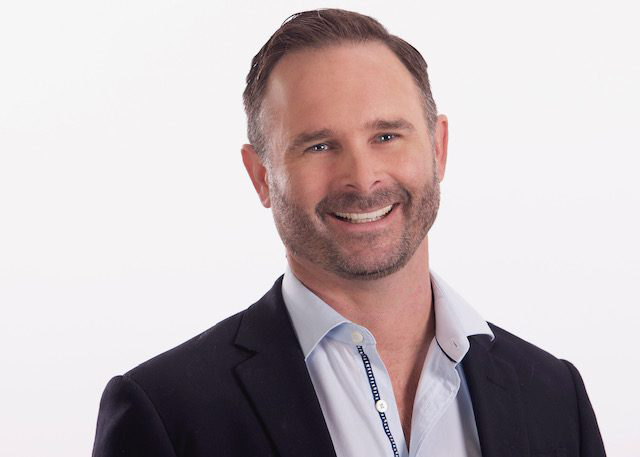Cocaine is a powerful stimulant that can quickly lead to dependency, making it extremely difficult for individuals to stop using without professional intervention. Recovery from cocaine addiction is possible, but it requires comprehensive support, evidence-based treatment, and finding support for cocaine addiction recovery. The journey often involves multiple stages of care, from medically supervised detoxification to long-term aftercare programs.
At SEE Purpose Center for Addiction Treatment in Bloomfield, IN, we understand that every person’s path to recovery is unique. That’s why we offer a full continuum of care specifically designed for cocaine addiction, including detox services, inpatient treatment, and ongoing aftercare support.
Recognizing the Need for Support for Cocaine Use
Understanding when to seek help for cocaine addiction can be challenging, especially since substance use disorders often involve denial and minimization of the problem. However, certain warning signs indicate that professional intervention is necessary.
Physical symptoms that warrant immediate attention include persistent nosebleeds, frequent headaches, weight loss, insomnia, and even cardiovascular issues.1 Behavioral changes such as neglecting responsibilities, isolating from loved ones, lying about drug use, and continuing to use despite negative consequences also signal the need for professional help.2
Scarily enough, cocaine use also leads to psychiatric symptoms that can be incredibly detrimental, including:3
- Agitation
- Paranoia
- Hallucinations
- Delusions
- Violence
- Suicidal and homicidal thinking
The first step to finding help is recognizing that addiction is a disease that requires treatment, especially with substances as addictive as cocaine. Professional addiction treatment is always recommended for cocaine addiction due to the complex physical and psychological aspects of the disease.
Finding Support for Cocaine Addiction Recovery
Effective cocaine addiction recovery typically involves multiple levels of care, each designed to address different aspects of the disease and stages of recovery.
Detoxification Services
Medical detox is often the first step in cocaine addiction treatment. While cocaine withdrawal may not be as physically dangerous as alcohol or benzodiazepine withdrawal, it can still involve intense psychological symptoms including depression, anxiety, fatigue, and powerful cravings.4
Professional detox programs provide a wide range of benefits during this critical detox period, including:
- 24/7 medical support
- Medication to alleviate withdrawal symptoms
- Therapy to address underlying mental health issues
- Support and structure during this challenging time
Inpatient Treatment Programs
Inpatient or residential treatment provides the most intensive level of care for cocaine addiction. These programs typically last 30 to 90 days and offer around-the-clock support in a structured, substance-free environment.
Inpatient programs incorporate various evidence-based therapies, including cognitive-behavioral therapy (CBT), which helps patients identify and change thought patterns that contribute to drug use. Dialectical behavior therapy (DBT) teaches emotional regulation and distress tolerance skills. Many programs also include family therapy to address relationship issues and build a strong support network for recovery.
Group therapy sessions allow patients to connect with others facing similar challenges, reducing isolation and shame while building peer support relationships. Individual counseling provides personalized attention to address underlying mental health issues and trauma that may contribute to addiction.
Outpatient Treatment Options
Outpatient programs offer flexibility for individuals who need treatment while maintaining work, school, or family responsibilities. Intensive outpatient programs (IOPs) typically involve 9-12 hours of treatment per week, including individual therapy, group counseling, and educational sessions.
Standard outpatient programs require fewer weekly hours but still provide essential therapeutic interventions. These programs often incorporate cognitive-behavioral therapy, motivational interviewing, and contingency management techniques specifically effective for cocaine addiction.
Outpatient programs also focus on relapse prevention, teaching patients how to identify triggers, develop healthy coping strategies, and build a sustainable recovery lifestyle.
Support Groups and Peer Support
Twelve-step programs like Narcotics Anonymous (NA) and Cocaine Anonymous (CA) provide ongoing peer support through regular meetings and sponsorship relationships. These free programs offer a structured approach to recovery based on spiritual principles and community support.
Alternative support groups like SMART Recovery focus on self-empowerment and evidence-based techniques. These meetings emphasize building motivation, coping with urges, managing thoughts and behaviors, and living a balanced life.
Peer support specialists, individuals who have personal experience with addiction recovery, can provide mentorship and practical guidance throughout the recovery process. This type of support helps bridge the gap between professional treatment and independent living.
Building Your Recovery Foundation
Recovery from cocaine addiction is more than just stopping drug use. It involves rebuilding your life, repairing relationships, and developing new patterns of thinking and behavior. The support systems mentioned above work together to create a comprehensive foundation for lasting recovery.
Professional treatment provides the clinical expertise and evidence-based interventions necessary to address the complex nature of addiction. Peer support offers understanding, hope, and practical guidance from others who have walked a similar path. Family and friends provide love, encouragement, and accountability throughout the recovery journey.
At SEE Purpose Center for Addiction Treatment, we recognize that recovery is a lifelong process that requires ongoing support and commitment. Our comprehensive approach addresses not just the addiction itself, but the whole person, including their physical health, mental well-being, relationships, and life goals.
If you or someone you love is struggling with cocaine addiction, don’t wait to seek help. Contact SEE Purpose Center today to learn more about our treatment programs and take the first step toward recovery.
Frequently Asked Questions About Finding Support for Cocaine Addiction Recovery
How do I know if I need professional help for cocaine addiction?
Professional help is recommended if cocaine use is causing problems in your life, including relationship conflicts, work or school issues, financial difficulties, or health concerns. Other signs include unsuccessful attempts to quit on your own, using larger amounts or more frequently than intended, spending significant time obtaining or using cocaine, and continuing use despite negative consequences. If you’re questioning whether you need help, it’s likely time to speak with an addiction professional who can provide an assessment and recommendations.
What’s the difference between inpatient and outpatient treatment?
Inpatient treatment involves living at a treatment facility for typically 30-90 days, providing 24-hour medical supervision and intensive therapeutic programming. This level of care is recommended for individuals with severe addiction, co-occurring mental health disorders, or those who have been unsuccessful in outpatient treatment. Outpatient treatment allows you to live at home while attending regular therapy sessions and programming. Intensive outpatient programs (IOPs) involve 9-12 hours of treatment per week, while standard outpatient programs require fewer hours. The choice depends on the severity of your addiction, support system at home, and other individual factors.
How long does cocaine addiction treatment take?
The duration of treatment varies significantly based on individual needs and circumstances. Detox typically lasts 3-7 days, while inpatient treatment usually ranges from 30-90 days. Outpatient programs can last anywhere from 3-12 months or longer. However, recovery is a lifelong process, and many people benefit from ongoing support through therapy, support groups, or alumni programs for years after completing initial treatment. The goal is to provide enough support and tools to maintain long-term sobriety.
Will insurance cover cocaine addiction treatment?
Most insurance plans are required to cover addiction treatment under the Mental Health Parity and Addiction Equity Act. However, coverage varies by plan, and you may have different benefits for inpatient versus outpatient care. It’s important to verify your specific benefits by calling your insurance company or having the treatment facility check your coverage. Many treatment centers also offer payment plans, sliding scale fees, or financial assistance programs for those who need help covering treatment costs.
What happens during cocaine detox?
Cocaine detox involves allowing the drug to completely leave your system while managing withdrawal symptoms under medical supervision. While cocaine withdrawal typically isn’t life-threatening, it can involve intense psychological symptoms including depression, anxiety, fatigue, sleep disturbances, and powerful cravings. Medical professionals may prescribe medications to help manage these symptoms and ensure your comfort and safety. Detox also includes individual and group counseling to begin addressing the psychological aspects of addiction and prepare for ongoing treatment.
Can I continue working while in addiction treatment?
This depends on the level of care you need and your work situation. Inpatient treatment requires taking time away from work, but many employers are required to provide job protection under the Family and Medical Leave Act (FMLA) for employees seeking addiction treatment. Outpatient programs are designed to work around employment schedules, often offering evening or weekend sessions. Some employers also offer Employee Assistance Programs (EAPs) that can provide support and resources for addiction treatment. Discussing your situation with both your employer and treatment provider can help determine the best approach for your specific circumstances.




